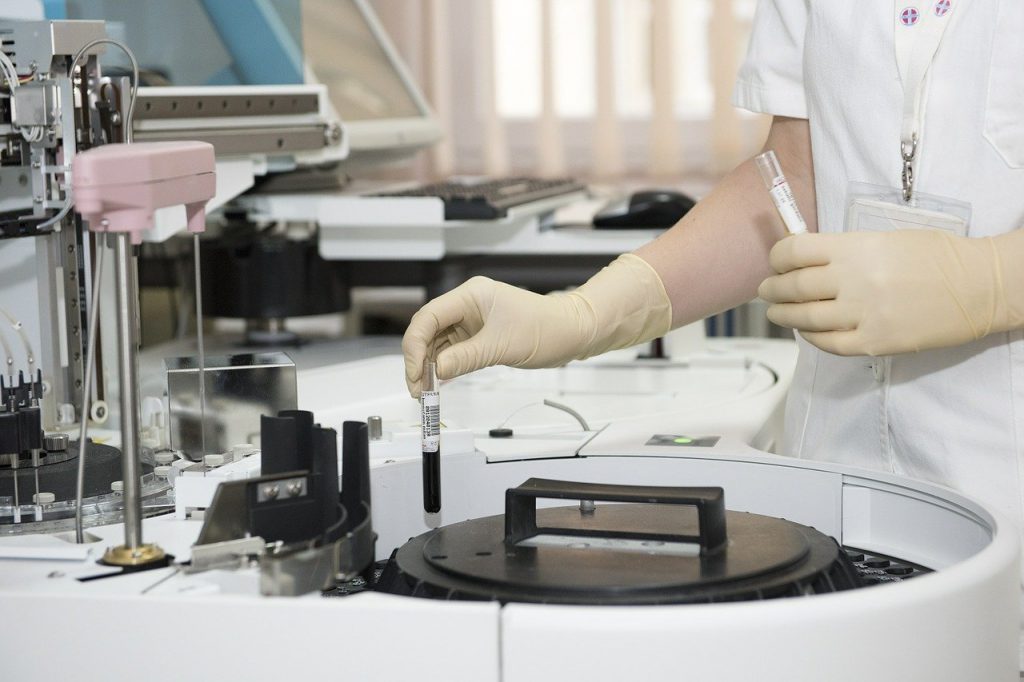On the surface, supply chain management might not seem like it plays such a crucial role in the healthcare industry’s ability to improve people’s lives but distributing medicine to those who need it is impossible without efficient shipping logistics.

And with the first batch of COVID-19 vaccines projected to be available for public use in the months ahead, supply chains are under renewed focus. As amazing as the work has been to create and verify a viable vaccine, that’s only one aspect of the work involved. “It’s just incredible. I think the vaccine supply chain is one of the most mind-bogglingly complex supply chains ever built,” Johns Hopkins University’s Tinglong Dai, an operations management professor who specializes in healthcare data, recently told USA Today.
Each vaccine candidate requires different storage requirements, and this adds complexity to the delivery process. Here are the solutions that supply chains will be used to meet these demands.
Cold Chain Monitoring to Deliver Medicines and Vaccines
Cold chain management is the process of maintaining the quality of perishable supplies. Examples of perishable products include food, sensitive industrial equipment, and medicines. In the medical supply chain, cold chain tech is indispensable, since certain drugs are ineffective if not stored properly. For example, insulin needs to be stored between 36F and 46F to remain effective.
There are different tools that companies use to implement and supervise the cold chain delivery process. The largest of these are freight vehicles carrying refrigerated containers. Companies can lease these containers fully from transportation firms, or they can rent a portion of them to transport their goods.
Larger firms, as is the case with pharmaceutical companies, generally purchase fleets of trucks and containers for their use to monitor shipments. Sensors monitor the internal temperature of the container and also track other data such as vibration, changes in position, and spillage. These data are transmitted to control rooms that alert the fleet to possible damage.
Data can be captured by data logging software and by indicators on the scene, but transmitting the data back to the control room is a challenging process. Traditionally Radio Frequency Identification (RFID) instruments are used to carry out this process. These days, technology such as Logmore‘s data loggers, which display dynamic QR codes, do the job much more efficiently.
“Damaged vaccines can become ineffective or even harmful to the user. That alone is a big enough reason to make sure that no spoiled products make it to the end-user, whose life might depend on the medication,” Logmore CEO Janne Juhala recently told Tech Bullion.
“In addition to that, all the spoilage really adds up. Unusable products need to be disposed of, which often causes environmental harm. To consider a hard, cold ‘corporate’ worldview, every single mishap with products that led to issues is a hit on customer trust and could even lead to legal repercussions.”
Cold chain tech also comes in smaller sizes. Cooling gel packs, bricks, and bottles store smaller shipments of medicines. These solutions are used for last-mile deliveries. Last-mile refers to the supply of goods from warehouses to a customer’s doorstep. Monitoring the quality of goods throughout the process is essential for successful delivery. Vaccines and medical supplies are usually delivered using thermal boxes. They come as individual boxes or as full-sized carts that can transport supplies.
Condition Monitoring For Instrumentation
Medicines are what people usually think of when the word healthcare is used. However, healthcare items extend well beyond them. Medical labs require sophisticated equipment that can measure and log patient data. Doctors use these reports to arrive at diagnoses. Aside from medical reports, instruments are used heavily during drug trials, much like the ones the COVID-19 vaccine candidates are undergoing.
These devices are fragile and consist of a variety of sensors and meters. Transporting them is a sensitive task, and they require constant condition monitoring. Older supply chain tech focused on track-and-trace methods, which specifies where a product has been and where it’s headed. Modern supply chain tech uses predict-and-prevent technology, which implements artificial intelligence algorithms to predict potential disruptions.
Condition monitoring extends to the entire fleet, instead of single containers, and the need for emergency backups reduces.
AI is also playing a role in helping companies reorient their supply chains. The pandemic has highlighted the need to bring manufacturing of essential supplies onshore, instead of relying on distant Asian factories. By predicting production timelines and monitoring en-route supplies’ conditions, medical instruments and drugs can be delivered in optimal shape.
Inventory and Order Management for Pharmacies
Order management is a collaborative effort between businesses and their supply chain partners. Accurate demand forecasts ensure that production timelines are optimized, and supply chains can align accordingly. When it comes to medicines, pharmacies project demand based on a variety of factors such as seasonality and local conditions.
The pandemic has changed consumer behaviors, and in-person visits have decreased. Online consultations and home delivery of medicines have increased. Such a change in demand patterns is unprecedented, and supply chain tech has helped pharmacies deal with the situation better.
“Any technology that enables the distribution of the pharmacist’s workload so they can focus more on patient care will have a major beneficial impact on society as a whole,” PerceptiMed CTO Ram Subramanian recently explained to Forbes. “We need to make sure we ride along with the wave of change and not behind it.”
Today, more medicines are stored on-site using cold chain technology such as thermal boxes. Online pharmacies use condition monitoring technology like QR codes and deliver goods using thermal boxes that monitor as well as prevent damage to their goods. Their inventory management systems are using AI algorithms similar to ones used to develop intelligent supply chains. All of these solutions help manage to change demand patterns and align supplies accordingly.
The Foundation of the Recovery
As the world deals with the pandemic and starts to move towards recovery, supply chain logistics will be at the heart of everything. As supply chains grow more intelligent, the delivery of medicines and vaccines are almost certain to be efficient, despite the challenges.






